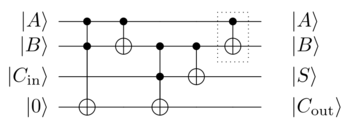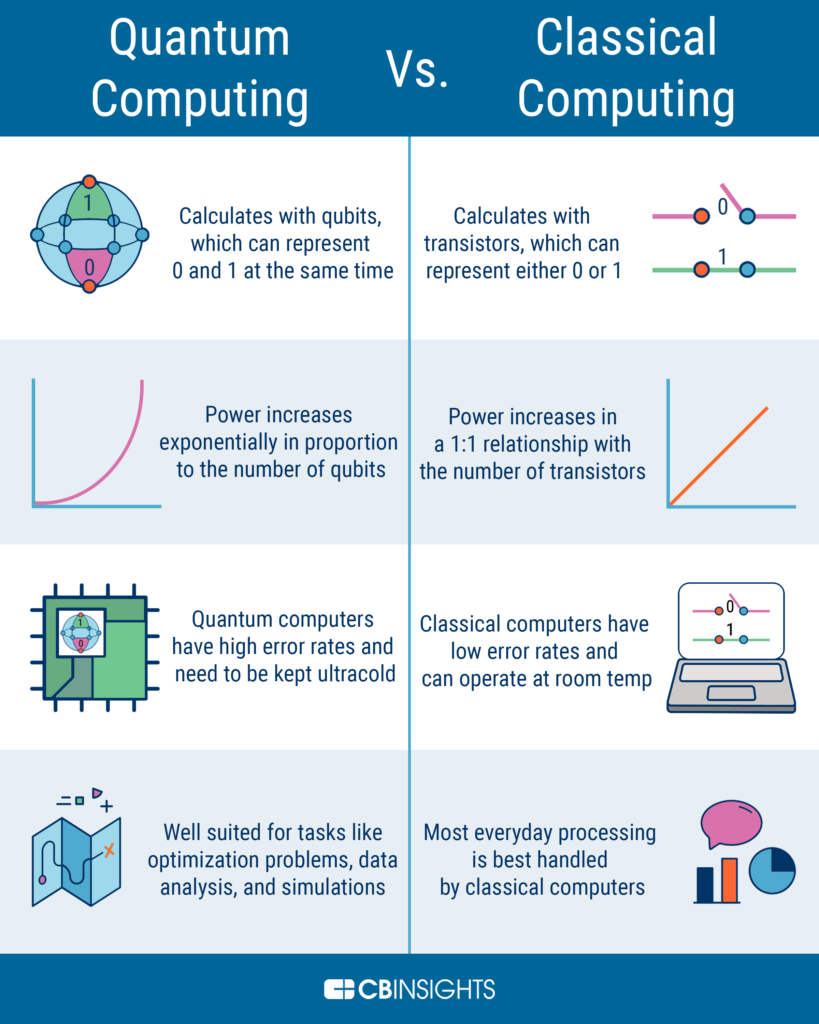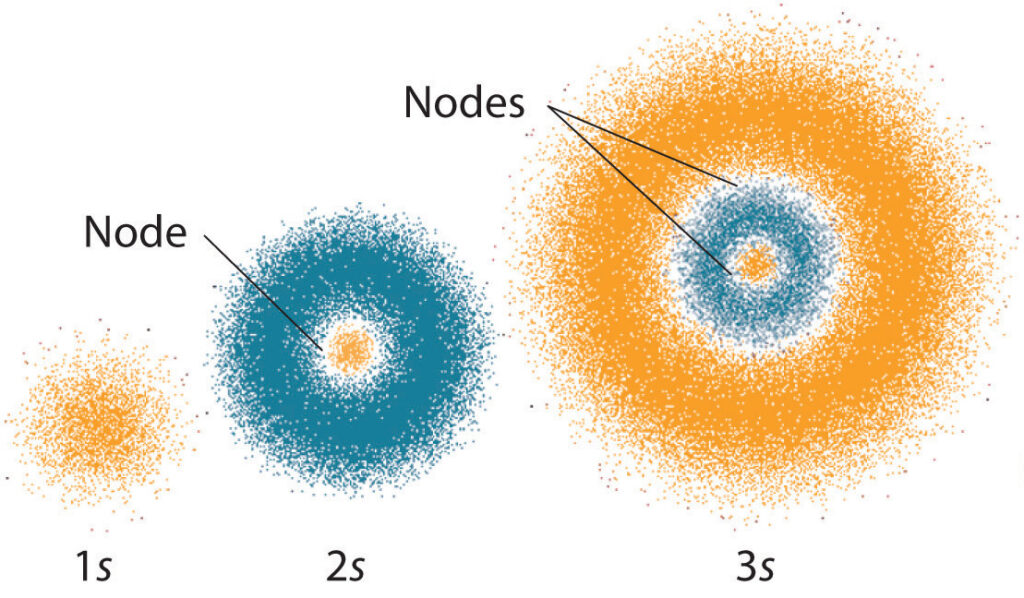Quantum computing is a rapidly evolving field that has the potential to revolutionize the way we process information. One of the key components of quantum computing is the quantum gate, which is essentially a physical device that allows us to manipulate quantum bits (qubits) in order to perform various operations. The concept of a quantum gate is fundamental to quantum computing, and it plays a crucial role in the development of quantum algorithms and applications.
In this article, we will explore the concept of a quantum gate in detail. We will start by discussing what a quantum gate is and how it works. We will then delve into the different types of quantum gates that exist and explain their respective functions. Additionally, we will explore the potential applications of quantum gates and their significance in the field of quantum computing. By the end of this article, you will have a solid understanding of what a quantum gate is and why it is so important to the future of computing.
A quantum gate is a basic operation that is used to manipulate qubits in a quantum computer. It is the equivalent of a logic gate in a classical computer and is used to build up more complex quantum algorithms. Quantum gates are represented by unitary matrices and can be used to entangle qubits or to measure the state of a qubit.

What is a Quantum Gate?
A quantum gate is a device used in quantum computing to manipulate quantum bits (qubits) of data. It is analogous to a classical logic gate, but operates on quantum-mechanical phenomena such as superposition and entanglement. Quantum gates are used to create and manipulate quantum circuits, which are the building blocks of quantum computers.
How Does a Quantum Gate Work?
A quantum gate is a physical device that is designed to perform a specific quantum operation on a quantum mechanical system. A quantum gate acts on one or more qubits in order to change their state. The quantum gate acts as a switch, allowing quantum information to be processed and manipulated. Quantum gates can be used to implement various quantum algorithms, such as Shor’s algorithm and Grover’s algorithm.
Quantum Gates and Superposition
A quantum gate takes advantage of the fact that a qubit can exist in a superposition of two states, which allows for the manipulation of quantum information. When a quantum gate is applied to a qubit, it can change the state of the qubit, creating a new superposition. This allows for complex operations to be performed on the qubits, such as applying a quantum operator or measuring the state of the qubits.
Quantum Gates and Entanglement
Quantum gates also make use of entanglement, which is a phenomenon in which two or more qubits become linked together. Entangled qubits can be used to perform operations on each other, allowing for the implementation of quantum algorithms. Entanglement is an important part of quantum computing, as it allows for the creation of complex quantum systems. Quantum gates can be used to generate and manipulate entangled qubits, enabling the implementation of quantum algorithms.
Frequently Asked Questions About Quantum Gates
Quantum gates are fundamental operations used to perform quantum computation. They are the building blocks of quantum algorithms, and are essential to the functioning of quantum computers.
What is a quantum gate?
A quantum gate is a quantum mechanical device that acts on one or more qubits. It is used to perform a quantum operation on the qubits, such as entangling them or changing their state. Quantum gates are the equivalent of logic gates in classical computing.
Quantum gates are essential to the functioning of quantum computers, as they are used to perform quantum operations on the qubits. By combining different quantum gates, complex quantum algorithms can be created, which are used to solve difficult problems such as factoring large numbers or simulating quantum systems.
What are the different types of quantum gates?
The most common types of quantum gates are single-qubit gates and two-qubit gates. Single-qubit gates act on a single qubit and can be used to change the state of the qubit or entangle it with other qubits. Examples of single-qubit gates include the NOT gate, the Hadamard gate, and the CNOT gate.
Two-qubit gates act on two qubits simultaneously, and can be used to entangle qubits or to perform operations on multiple qubits at the same time. Examples of two-qubit gates include the CNOT gate, the CZ gate, and the SWAP gate.
How do quantum gates work?
Quantum gates work by applying a unitary operation to one or more qubits. A unitary operation is a type of mathematical operation that preserves the quantum state of the qubits. The unitary operation is applied to the qubits, which changes their state. This is analogous to how logic gates in classical computing work.
Quantum gates can be combined to create complex quantum algorithms, which can be used to solve difficult problems such as factoring large numbers or simulating quantum systems. The combination of quantum gates is analogous to how logic gates are used to create logic circuits in classical computing.
What is the difference between a quantum gate and a quantum circuit?
A quantum gate is a quantum mechanical device that acts on one or more qubits. It is used to perform a quantum operation on the qubits, such as entangling them or changing their state. Quantum gates are the equivalent of logic gates in classical computing.
A quantum circuit is a collection of quantum gates that are connected together to form a circuit. The quantum circuit is used to perform a quantum computation on the qubits. The quantum circuit is analogous to a logic circuit in classical computing.
Are quantum gates reversible?
Yes, quantum gates are reversible. This means that the operation performed by the quantum gate can be reversed, and the qubits can be returned to their original state. This property of quantum gates is essential to the functioning of quantum computers, as it allows for the efficient manipulation of qubits.
Reversibility also allows for the efficient implementation of quantum algorithms, as it allows for the undoing of operations without having to start over from the beginning. This makes quantum algorithms more efficient than their classical counterparts.

Applied Energistics 2 Tutorial #14 – Quantum Ring
In conclusion, the concept of quantum gates may seem complex and abstract at first glance, but it is a subject that has the potential to revolutionize the world of computing and information technology. As we continue to explore the possibilities of quantum computing, it is important to keep in mind the importance of quantum gates in enabling us to manipulate and control the behavior of quantum systems. From simple operations like the NOT gate to more complex gates like the CNOT gate, quantum gates are essential tools in the development of quantum algorithms and the creation of new technologies.
As we look to the future of quantum computing and the potential applications that it holds, it is clear that quantum gates will play a pivotal role in shaping the direction and scope of this field. Whether we are using quantum gates to build more powerful quantum computers or to explore the mysteries of the quantum world, this technology has the potential to transform the way we think about computing and information processing. So if you are interested in exploring the cutting-edge of technology and pushing the boundaries of what is possible, then the world of quantum gates is waiting for you to dive in and start exploring.



